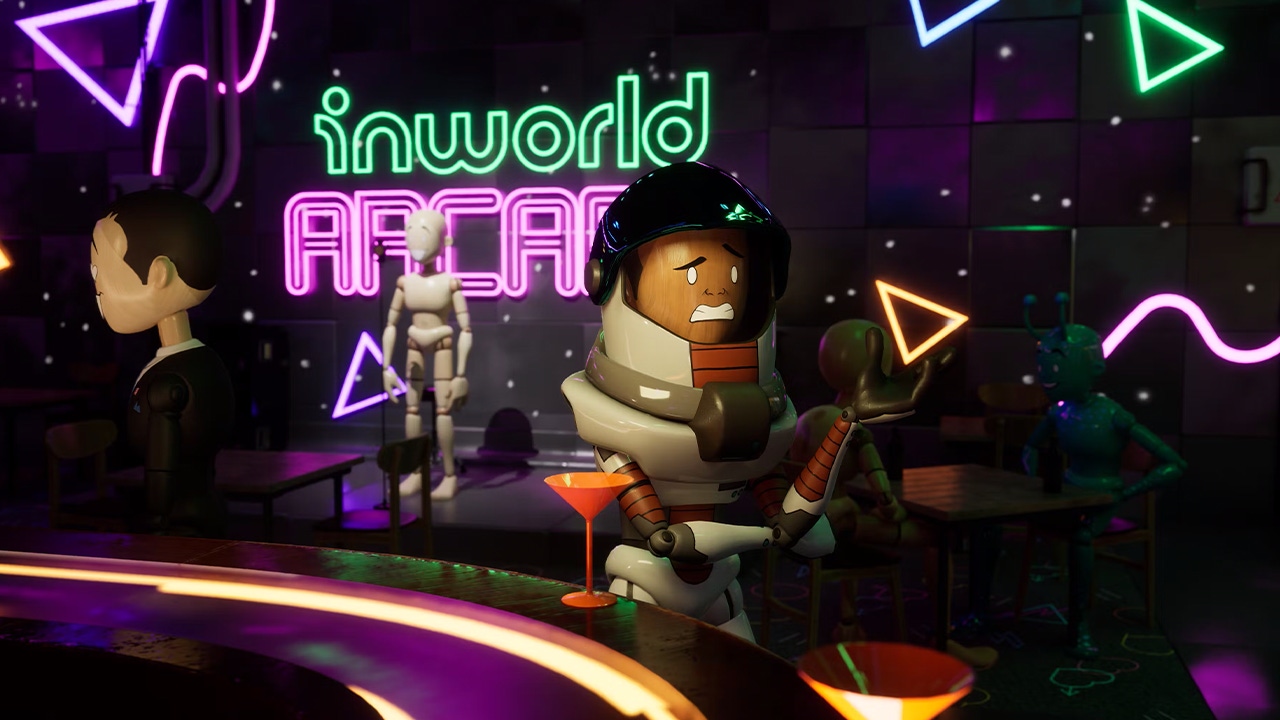Trending
Opinion: How will Project 2025 impact game developers?
The Heritage Foundation's manifesto for the possible next administration could do great harm to many, including large portions of the game development community.
The company believes its tools can help developers satisfy a growing 'thirst for content.'

AI company Inworld has rather predictably spent the last year espousing the benefits of AI-powered game development tools.
The company is currently working with the likes of Xbox and Ubisoft on generative AI tools that can be used to generate branching storylines and automate the creation of NPCs.
Inworld has previously spoken about how those tools could unlock new types of experiences for players. It's textbook marketing gumbo that has also been parroted by the likes of EA and Embracer Group, but now Inworld is going a step further.
Speaking directly to developers about how its tools might benefit them, Inworld claims AI-assisted design and production practices will help workers move "beyond crunch."
In an extensive blog post that breaks down a bunch of Inworld's tools and initiatives, the company has suggested its creations will ultimately prevent developers from being worked to the bone.
"AI can open doors to new types of experiences, narratives, and gameplay when AI agents and NPCs are added to games–but it can also be used as a tool to accelerate game development and design," reads the blog.
"As the costs of developing games skyrocket and the thirst for content grows, developers can leverage AI to streamline production and get games to market more quickly. We’ve developed a suite of game design tools that assist with prototyping and drafting narrative and content."
Inworld then runs through a bunch of its developer-facing AI tools (including Narrative Graph, which is being co-developed Xbox) to prove just how much work it can help eliminate while developers attempt to sate that "thirst for content." Gamers need their Kool Aid, after all.
It claims, for instance, that an AI writing assistant called Scriptwriter can help devs draft game dialogue by offering "context-aware suggestions based on the game's world and characters."
Alternatively, you could use a tool called Voice Studio to "record voiceovers with synthetic AI voices, providing a cost-effective solution for adding expressive voice acting to games." Or you could always lean on Mass Character Generator to automate the creation of AI NPCs by generating thousands of unique characters in-engine.
There's nothing inherently wrong with suggesting that AI tools could be used to accelerate workflows and eliminate menial tasks, enabling developers to focus on more creative endeavors. In fact, studios like Revolution Software have already deployed bespoke AI tools to do precisely that.
Yet, when huge corporations like Xbox, EA, and Embracer–which have collectively laid off thousands of employees this year–start waxing lyrical about how generative AI will become a fundamental part of production, eyebrows are understandably raised.
It's hard for developers to hear those multi-studio conglomerates discuss streamlining workflows and reducing costs without thinking of layoffs and dwindling work opportunities.
It's why SAG-AFTRA continues to strike in pursuit of better AI protections for voice actors (who we imagine might not enjoy the prospect of being replaced by synthetic narrators) and some developers remain cautious about how generative AI tools will actually be implemented once the investor-driven hype train pulls into the station known as reality.
You May Also Like